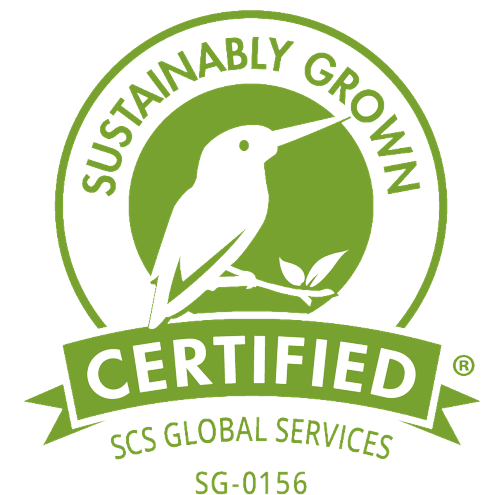
Composting/Re-cycling Green Waste: We operate some of the largest privately run composting programs in the Southwest. Through this extensive and comprehensive composting program, we are able to take large quantities of waste from local dairies, feedlots, equestrian centers, and other sources and turn it into natural fertilizer. Once on our farm, this ‘waste’ that might otherwise become a nuisance to nearby residents is quickly broken down and repurposed to create healthier soil for our crops. Our farm also receives truck-loads of tree trimmings, grass clippings and wood chips from local municipalities. We are able to take this green waste that would otherwise end up in the local landfills and recycle it. The tree trimmings and grass clippings are added to the compost piles to help increase the quality of our natural fertilizer.

Water Conservation: Because water is such a precious natural resource and so vital to our farming operation, we have developed state-of-the-art techniques to help conserve it. We use a farm-wide system of high pressure manifolds that serve water to specially designed sprinkler and drip irrigation systems. In addition, the compost we apply seasonally to our fields acts like a sponge to retain moisture which in turn helps to reduce our water usage.
Water Use Efficiency Highlight

Cover Crops: Many people, including our bankers, find it surprising that we grow a number of crops with no intention of ever harvesting them. When our cover crops are mature, we shred the plants into tiny pieces and immediately incorporate the large amount of new organic matter into the soil. These cover crops, sometimes referred to as ‘green manure’ crops, help to protect and improve the soil by controlling erosion and weeds, and maintaining organic matter. Cover crops also increase soil’s water-holding capacity, which decreases leaching of nutrients, helps retain and recycle plant nutrients between crops, provides habitats for beneficial microorganisms, and increases the soil’s biological diversity.

Creating Economically Viable Open-Space and Helping to Protect Luke Air Force Base: All communities need businesses as well as open spaces. Although in most circumstances these are mutually exclusive, we are able to operate a viable business while simultaneously providing community-friendly open space, due to the unique nature and location of our Goodyear, AZ farming operation. Our location in Luke Air Force Base’s Southern Departure Corridor also helps to preserve low-density, open space that is essential in ensuring the safety of pilots and the future of the base.

Giving back to the Community by Supporting Arizona Food Banks: Our Goodyear, AZ farm has been a long-time supporter of the Association of Arizona Food Banks. Helping to feed hungry families has always been an important mission at Duncan Family Farms®. In the mid-nineties Arnott Duncan was part of a team that helped to establish the Statewide Gleaning Project, an innovative program where inmate labor is used to ‘glean’ fresh produce from the farm’s fields that is then donated to Arizona Food Banks. Through this unique program the farm has been able to donate more than a million pounds of produce to Arizona Food Banks each season. The program has also become a national model and has been replicated in other farming areas around the state and country.

Recycling Programs: Farms use a lot of heavy, metal machinery and broken parts and scrap metal are frequently used to patch, repair and even improve this equipment. When all other valuable uses for this metal are eliminated, we collect it a truck-load at a time and recycle it. Fresh fruit and produce farms seem to use a lot of cardboard products in their packaging materials and we are no different. Any of the unusable cardboard material is separated and also collected by the truck-load to be recycled. We have full time crews on the farms to pick up trash that could potentially contaminate our products. We are always amazed at how much trash is blocked from coming into the farms by the fences that we put around the perimeters of the fields. This trash is collected daily and certain materials are separated and recycled. Some of the wasted paper products from our offices is shredded and delivered to the compost piles, and while it may not seem like much volume compared to our other programs, every little bit helps.

Tree Planting: Each year we purchase and plant thousands of small trees around the perimeter of the land that we farm. As these trees mature they serve as windbreaks, which reduce soil erosion, create natural buffers between our farm and nearby homes, improve the overall air quality, and help to make our communities more attractive.

SCS Kingfisher Sustainably Grown Certificate: SCS Global Services (SCS) has been providing global leadership in third-party quality, environmental and sustainability verification, certification, auditing, testing, and standards development for three decades. Its programs span a cross-section of industries, recognizing achievements in green building, product manufacturing, food and agriculture, forestry, power generation, retail, and more. SCS is accredited to provide services under a wide range of nationally and internationally recognized certification programs. Consistent with its mission, SCS is a chartered benefit corporation, reflecting its commitment to socially and environmentally responsible business practices.
